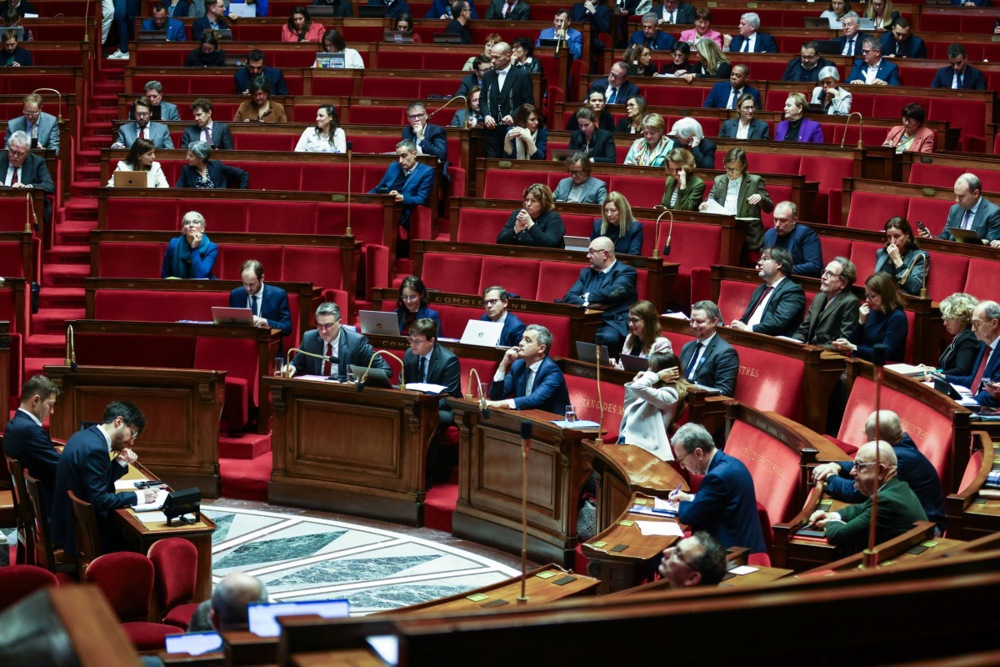The latest report from the French Court of Auditors is scathing about President Emmanuel Macon’s immigration plans.
Among the Court’s observations was the fact that: “The direct cost of the policy to combat illegal immigration amounts to approximately €1.8 billion per year, involving the commitment of nearly 16,000 full-time civil servants and military personnel.”
The withering report comes just a couple of weeks after the French National Assembly approved a migration law, with the help of Marine Le Pen’s Rassemblement National.
Pierre Moscovici, First President of the Court of Auditors and a former European Commissioner, said Macron’s goal of expelling all foreigners under an “obligation to leave French territory” (OQTF) was “fantastical”.
Macron’s migration legislation aims to tackle the influx of foreigners to France and give newcomers fewer benefits, or incentives, than they receive today.
A key element of the law is the expulsion of “unwanted” people, something Paris wants to expand on.
In its latest report published on January 4, the Court of Auditors picked those plans to pieces, stating the current expulsion policies are “ineffective”.
In the report, which studies the relationship between the means used and the results obtained in relation to the objectives the State set for itself, the Court noted that France currently only manages to expel a “small minority” of foreigners under OQTF.
The State needs to “organise itself better”, the Court said, as France currently only expels 10 per cent of those ordered to leave the country.
It added that deportation occurs in 2 per cent of cases where the asylum claim or residency of an individual is denied.
According to the Court, Paris could benefit from altering the current “ineffective” strategy that is centred primarily on the widespread issuance of OQTF.
Administrative services and the courts tasked with managing illegal aliens are struggling to fulfil their missions due to inadequate resources, the Court observed. “Prefectures are overwhelmed,” it said.
In 2022, there were 153,042 expulsion orders issued in France, of which 134,280 were OQTF cases. In that year, the country only deported 11,406 people, including 7,214 in a “forced” manner.
The Court said: “This decoupling between the number of expulsion orders issued and their effective execution demonstrates the difficulties of the State in enforcing its particularly numerous decisions, including under duress.”
The auditors noted that the French Government has given priority to migrants who “pose a risk to public safety” or have previously faced criminal convictions.
Since December 2022, more than 90 per cent of those in administrative detention centres were held there due to public disorder or radicalisation “offences”, compared to 44 per cent four months earlier.
Also on January 4, the Government announced that 4,686 foreign delinquents were expelled from French territory in 2023, an increase of 30 per cent compared to 2022 and more than double that of 2021.
The majority of individuals deported are headed for the Northwest African Maghreb, sub-Saharan Africa and Central Europe, it is believed.
EXPULSIONS DES ETRANGERS DÉLINQUANTS EN HAUSSE
En 2023, conformément aux consignes de grande fermeté du Président de la République, 4686 étrangers délinquants ont été reconduits dans leur pays d’origine, soit 30% de plus qu’en 2022 et plus du double du nombre de 2021. A partir… https://t.co/R5H0lolzyk
— Gérald DARMANIN (@GDarmanin) January 4, 2024
The Court noted that some countries are “difficult to work with” regarding forced removals, in particular Algeria and Iraq. Other states such as Morocco are regarded as troublesome in view of the implementation of assisted voluntary return.
It also suggested that those in an “irregular situation”, without any wrongdoing, could receive support for their return. It recommended enhancing the flexibility of the “departure encouragement system” by offering a payment of up to €2,500.
The Court noted that the re-establishment of internal border controls, initially intended to be temporary, had been in place for eight years and has proven to be only “minimally effective”.
To enhance border surveillance, it recommended aligning the inspection powers of the border police with those of customs, reassessing the allocation of border-crossing points between these two administrations, and ensuring the collection and maintenance of the identity of individuals apprehended at the border.





